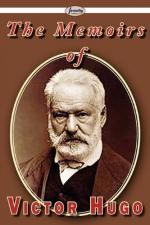|
This section contains 3,783 words (approx. 13 pages at 300 words per page) |

|
SOURCE: "Victor Hugo's Poetics," in The American Society Legion of Honor Magazine, Vol. 32, No. 3, 1961, pp. 181-96.
In the essay below, Riffaterre offers his interpretation of Hugo's philosophy of poetics.
As any poetics must be, Hugo's is inseparable from a certain theory of inspiration, since the nature of his inspiration affects a writer's techniques.
The poet finds inspiration in what surrounds him. His concern is with the "mysteries which rise to blind him … every morning with the sun, every evening with the stars." But Hugo goes far beyond contemplation and meditation upon the spectacle of nature: "the horizon darkens and contemplation becomes vision;" in fact, as early as the time of his first travels to see the world, when he composed Le Rhin, his exercises in imagination, and sometimes in hallucination, in the face of nature foreshadow the methods of a Rimbaud.
The poet's task is not only to...
|
This section contains 3,783 words (approx. 13 pages at 300 words per page) |

|


